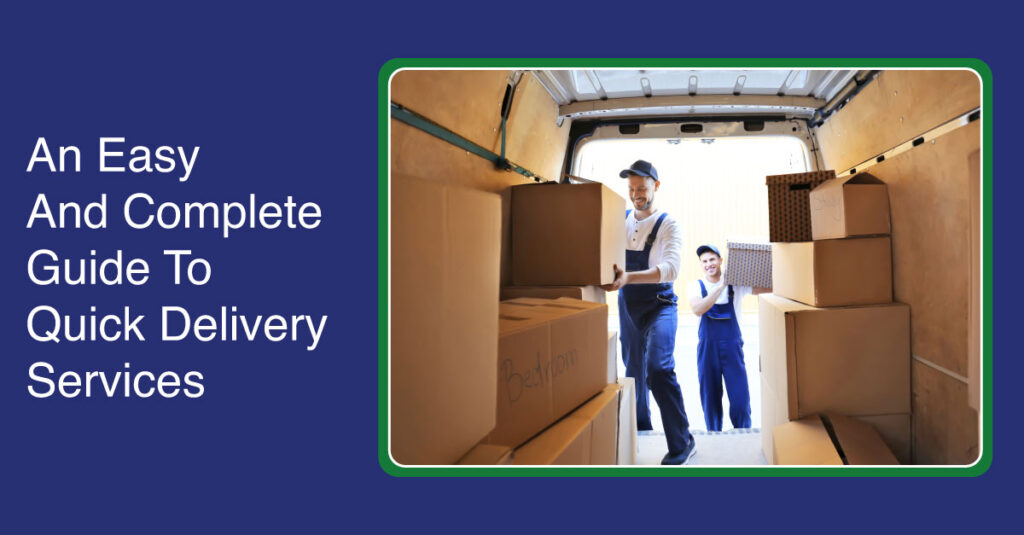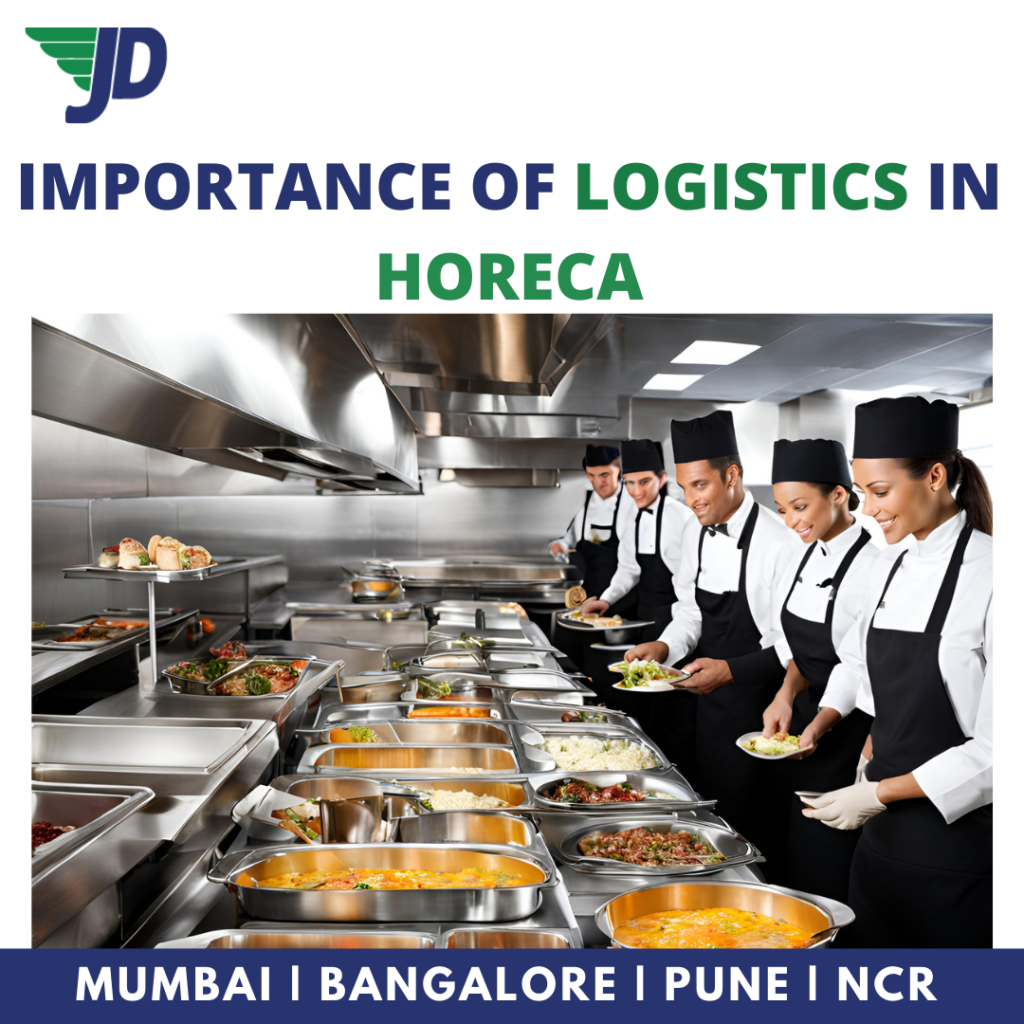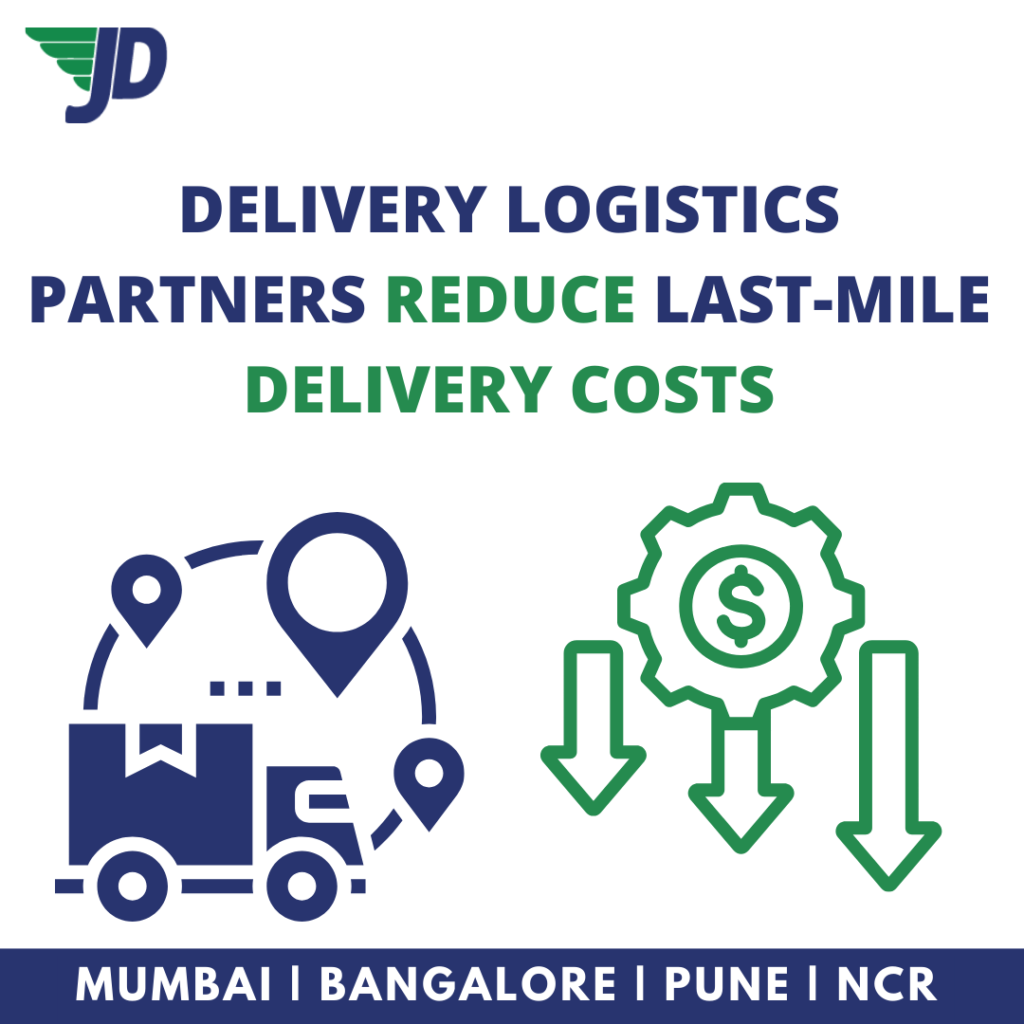Quick commerce is an emerging trend in the Indian e-commerce sector. Unlike traditional e-commerce delivery service that offers delivery between one day to one week, quick commerce offers delivery of goods within an hour. Quick commerce delivery services alongside appointment-based deliveries make the fulfilment of smaller orders possible at a blitzing speed. The Indian Q-commerce market is currently valued at USD 3.49 Billion and is projected to grow to USD 4.35 billion by 2029.
Just Deliveries is at the forefront of this revolution, helping businesses reach their clients faster and more efficiently. In this blog, we will discuss appointment-based delivery and learn about the challenges and benefits of Q-Commerce. We will also help you implement Q-Delivery strategies for your business.
A] Understanding Appointment-Based Deliveries
Appointment-based deliveries are a new form of logistics in which the specific date and time for the delivery of goods are predetermined and agreed upon by both parties. This form of delivery has become extremely popular in recent years as it ensures the goods are delivered at the convenience of the receiver.
Due to pre-determined delivery hours, the problem of missed deliveries is completely eliminated. The sender, the receiver, and the logistics team can effectively coordinate the delivery schedule. Appointment-based deliveries streamline operations for businesses and enrich customer experience.
Looking for B2B Last-Mile Delivery Services?
Partner with Us for Seamless B2B Last-Mile Delivery from Warehouse to Retailer
B] Common Challenges in Fulfilling Appointment-Based Deliveries in Q-Commerce Logistics
- Fleet Management: Managing the fleet and drivers is always a difficult task. Given Q-commerce’s complexity and scale, figuring out how to optimise fleet management is going to be a challenge.
- Workforce Management: Fulfilling appointment-based deliveries in an extremely short time heavily depends on the availability of delivery partners. Delivery partners must also be trained to cover the distance in the promised time while following safety protocols and traffic rules.
- Delivery Deviations: Problems like address inaccuracies, technical glitches, poor operational control, and lack of visibility can affect the delivery time. Consistently failing to deliver in said time duration leads to a poor market reputation.
- Poor Operational Visibility: Most Q-commerce orders are fulfilled by dark stores and independent delivery partners. Businesses do not have much insight into the operation between the pick-up and the delivery.
- Diverse Optimisation: Q-commerce does not involve many steps as most orders are fulfilled within thirty minutes. This reduces the ability to optimise processes on multiple levels and get ahead of the competition.
- Sudden Demand Fluctuations: Brands often run ads on multiple platforms at once. This makes it difficult for the logistics team to meet the demands on short notice.
C] Benefits of Appointment-Based Deliveries in Q-Commerce For Your Business
- Swift Delivery: Quick-commerce delivery aims to fulfil orders within thirty to sixty minutes. Q-commerce uses dark-store micro-fulfilment facilities that are situated in every city to achieve this, reducing operation costs and time.
- Hyperlocal Operations: To fulfil orders on time, Q-commerce often partners with local markets. This helps to boost the local economy while also reducing carbon emissions.
- On-Demand Shopping Experience: Customers can browse and shop for goods at their convenience through mobile apps or websites and receive the goods within a few minutes. This helps to improve sales and profits.
- Minimise Missed Deliveries: Appointment-based quick deliveries ensure the goods are delivered within a few minutes of order placement at the desired location. This helps to reduce missed deliveries and reverse logistics.
- Customer Satisfaction: Quick order fulfilment and convenient delivery scheduling improve customer satisfaction and also help to build customer loyalty.
D] Strategies for Successful Implementation Of Q-Delivery Services
- Optimised Last-Mile: The last mile is a significant part of the Q-commerce business model. You can improve the last-mile logistics using advanced software and training delivery partners. Using advanced dispatch systems to assign the delivery to the nearest available delivery partner can also help.
- Real-Time Inventory Management: Real-time inventory management allows you to keep track of what products are available in your dark stores and godowns. This information can be used to identify the most popular products, the least bought products, and which products are out of stock.
- User-Friendly Platforms: The customer should be able to navigate through the platform and browse products without any issues. From the landing page to checkout and beyond, the platform should be fast and easy to use.
- Supplier Networks: Focus on making strong business connections with local wholesalers and retailers. Strong local networks help you to fulfil orders faster and restock your own inventory.
- Sustainable Practices: E-commerce often generates large amounts of packaging waste. With order sizes being even smaller in Q-commerce, the issue of sustainability is heightened. Shifting eco-friendly, reusable packaging can help your business become sustainable.
E] Key Trends In Q-Commerce Business Model
- Expansion into high-value items such as mobile phones, electronics, and jewellery.
- The majority of the purchases done through Q-commerce platforms are either last-minute purchases or bought impulsively.
- Limited-edition and festive-themed products are more likely to be bought through Q-commerce.
- Local distributors and retailers are key to fulfilling orders at a blitzing speed and saving costs in inventory management.
- Q-commerce is most prominent in Tier 1 cities; however, it is rapidly growing in popularity in Tier 2 and Tier 3 cities.
- AI implementation in Q-commerce platforms allows for a personalised shopping experience and increases sales.
- Subscription-based models for weekly or monthly refilling of essential products will become a central model based on convenience.
- Discounts on repeat purchases help to build customer loyalty and promote repeat purchases.
- Omnichannel integration will blur the line between online and offline shopping.
You Can Learn More About The Quick Commerce Market in India With This Report.
F] How Just Deliveries Help Businesses Integrate Q-Commerce?
Just Deliveries is an expert and a leading name in last-mile logistics. We have the infrastructure necessary for catering to the unique needs of Q-commerce. From temperature-controlled storage and fleets to a trained and experienced team of delivery drivers, we have it all. Just Deliveries has closely worked with two of the leading ice cream players in India, Hocco and Go Zero, offering them Q-commerce services.
Our first step was to identify the gaps in the logistics chain through a thorough audit. Next, we implemented GPS-enabled temperature monitoring devices in our delivery vehicle to accurately track the shipment. We trained drivers and staff on hygiene practices and emergency protocols. Then, we moved on to the most crucial aspect of this program: setting up a control tower system to oversee real-time logistics operations and proactively address potential issues. And finally, we provided access to digital dashboards to the caterer that helped them measure traceability and compliance metrics.
Looking for B2B Last-Mile Delivery Services?
Partner with Us for Seamless B2B Last-Mile Delivery from Warehouse to Retailer
Conclusion
Appointment-based Q-commerce deliveries are transforming the industry at an unprecedented speed. Appointment-based deliveries, real-time inventory management, and hyperlocal operations are key to providing swift and reliable services. However, challenges such as fleet management, delivery deviations, and operational visibility need to be addressed for successful implementation. By adopting Q-delivery strategies and leveraging strong supplier networks, businesses can enhance customer satisfaction, reduce missed deliveries, and improve operational efficiency.
If you are looking to integrate appointment-based quick commerce into your business model, get in touch with us today! Our infrastructure and expert team can help you tailor your business for the next generation.

Mansi Mahansaria
I’m Mansi Mahansaria, CEO and Founder of JustDeliveries, a B2B logistics company specializing in the food and beverage sector. With a background in Chemical Technology (ICT Mumbai), an MBA (FMS Delhi), and experience at IDFC Private Equity and Tata Group, I’ve built a plug-and-play logistics network helping F&B brands scale efficiently. I also share insights on entrepreneurship and logistics at industry and academic events.






